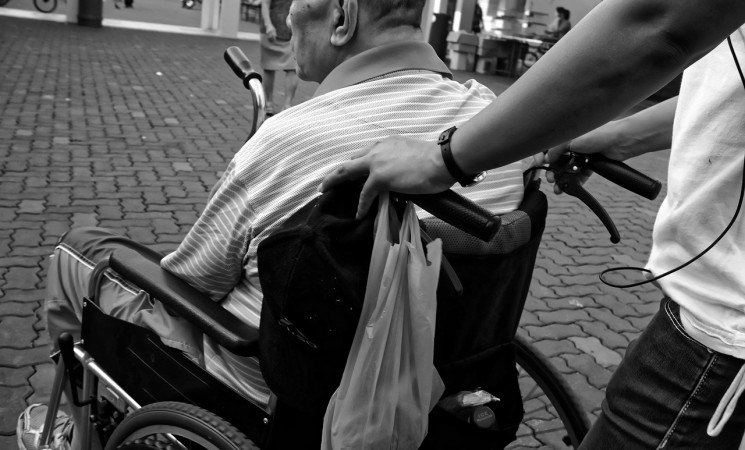Archived Content
This page is archived and provided for historical reference. The content is no longer being updated, and some of the information may have changed over time and could be outdated or inaccurate.

By Sara Hargrave, Ph.D.
Humans and other animals develop infections and experience bouts of sickness. Fortunately, we are equipped with an immune system that, among other things, releases inflammatory cytokines to clear pathogens from the body and initiate repair to the surrounding tissue, which usually allows us to recover within a few days.
Immune response fights infection and fosters behaviors that facilitate recovery
While we’ve known for ages that our immune system causes physical changes in our body that allow us to survive most illnesses, it wasn’t until 1987 that it became clear that increases in inflammatory cytokines can lead to behavioral and psychological changes.
Social withdrawal and reduced activity redirect our energy toward recovery
These symptoms, which include fatigue, reductions in grooming, loss of appetite, anhedonia, and a withdrawal from social activities, are known as “sickness behaviors” and are believed to be adaptive because they redirect our energy toward recovery, prevent us from consuming foods that are toxic, and limit the spread of disease by minimizing contact with others. Yet sickness behaviors are nearly identical to many of the symptoms of major depressive disorder, which has led many researchers to speculate that the conditions may share an underlying mechanism.
Major depressive symptoms are virtually identical to sickness behaviors
Inflammation reduces neural sensitivity to rewards such as food, sexual behavior, and money, and increases sensitivity to social threats and images of caregivers. Researchers from the Social and Affective Neuroscience Laboratory at the University of California, Los Angeles (UCLA), tested whether these inflammation-induced changes in brain activity were also present in more typical interactions, such as receiving social feedback. To do so, they introduced subjects to experimental confederates, who were ostensibly there to judge how well subjects performed during a 10-minute, audio-recorded interview. Participants were asked questions, such as “What is your best quality?” or “What are you most afraid of?” After the interview, subjects were given a break, then injected with either endotoxin (a compound that safely increases inflammation) or a placebo. At the peak of the inflammatory response, participants were placed in an MRI machine.
While fMRI scans were occurring, subjects believed that they were witnessing (in real-time) the experimental confederates provide feedback on their interviews via computer screen. In reality, they were watching a pre-recorded video of a mouse clicker selecting words from a list of positive (interesting, kind), neutral (sensible, reserved), or negative (boring, annoying) adjectives. While this was occurring, subjects rated their mood.
Not surprisingly, all subjects reported feeling more positive in response to positive feedback, and more negative in response to negative feedback. Yet there were no differences between the group that received the endotoxin and the placebo group. Inflammation did affect brain responsivity to both positive and negative social feedback.
Research suggests illness leads human brain detect negative, threatening social information
After endotoxin treatment, activity in the bilateral amygdala and the dorsal anterior cingulate cortex (two regions that respond to perceived danger) increased after negative feedback. Muscatell, Moieni, Inagaki, Dutcher, Jevtic, Breen, Irwin, and Eisenberger state that “The brain may be especially ‘primed’ during sickness to detect negative, threatening social information.”
Positive feedback led to increased activity in reward-sensitive brain regions, such as the ventral striatum and ventromedial prefrontal cortex, in subjects given the inflammatory challenge. The authors suggest that compliments and other types of positive feedback—even from a stranger—may signal potential care, closeness, and safety. Increased neural sensitivity to these cues may predispose sick individuals to value socially-relevant rewards more than rewards (e.g., money) that have little bearing on recovery.
During illness, the brain may be more sensitive to social interactions, and less sensitive to non-social rewards (such as money).
Though the link between inflammation, neural sensitivity, and sickness behavior is not fully elucidated, this is an important and interesting area for future research, which may yield innovative treatments for depression and improve the quality of life for people living with chronic inflammatory conditions.
Funding Acknowledgements
This research was funded by an NIH grant to Naomi Eisenberger (5R01MH091352), with additional support provided by Michael Irwin (R01AG034588; R01AG026364; R01CA160245-01; R01CA119159; R01HL095799; R01DA032922-01; P30AG028748) and the UCLA Clinical and Translational Science Institute (UL1TR000124), and the Cousins Center for Psychoneuroimmunology.
Read the Article








